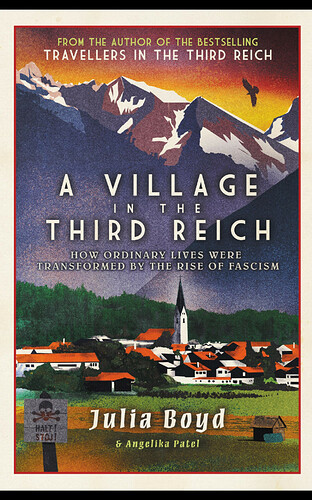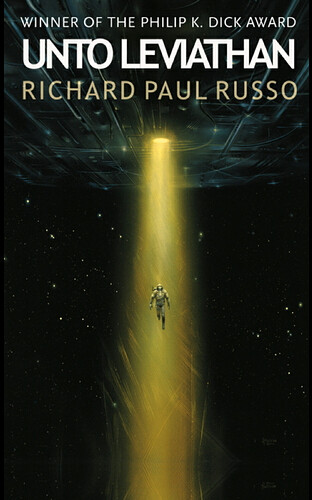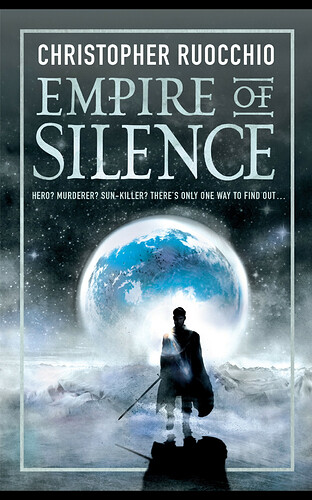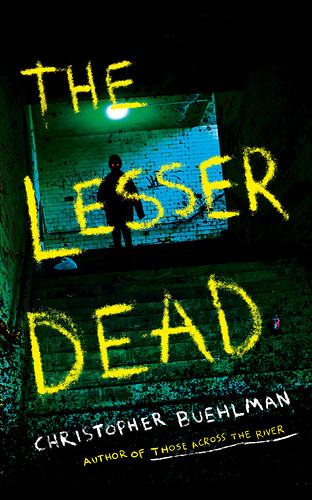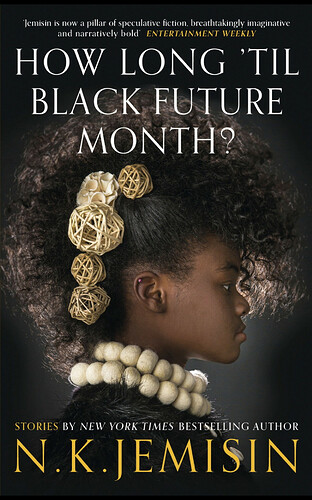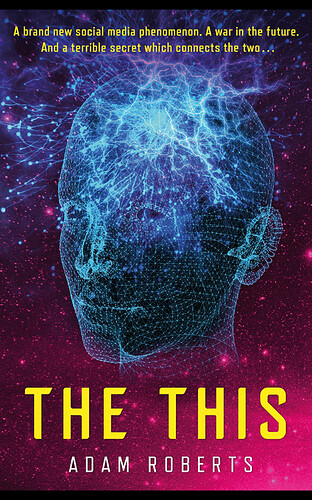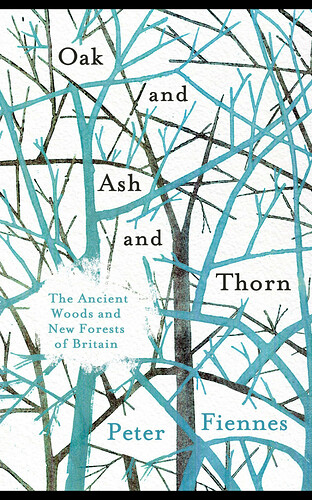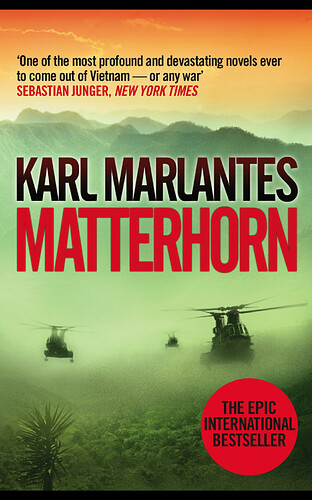I just finished The Expanse audiobook series. I was spoiled with the excellent narrator Jefferson Mays. I started listening to audiobooks on my daily hikes this past year. I’m looking for another audiobook series to sink my teeth into. I usually read history/biographies but they’re usually too dry for walks. I guess I’m looking for another good sci-fi or fantasy series. I don’t read much fantasy (GoT was probably the last thing I read) but I’m willing to give it a try. Not really a fan of the horror genre. Any suggestions?
The Interdependency trilogy by Scalzi is great scifi, and if you liked the Expanse, I’m pretty confident you will like this.
I’m in the middle of the Wheel of Time audiobooks on my daily walks. The narration is great but be prepared to be in it for the long haul.
I’ve actually quite enjoyed some young adult books in audio form. The Harry Potter series is a great listen. My two left field picks are the Bartimaeus Trilogy and the Lockwood & Co. series, both written by Jonathan Stroud and both expertly read for audio.
Cameron’s Traitor Son books, which start with The Red Knight, or Abercrombie’s The First Law trilogy, which starts with The Blade Itself. Can’t swear to the narration, and audiobooks live and die by it in my experience, but they are two top-notch fantasy series.
I know you said you’re not a fan of the horror genre but I’m not sure this fits anyways. World War Z has some great narration, too.
Thanks for all the great suggestions.
I appreciate books like this, which offer detailed insight into the non-obvious parts of life in the Third Reich, but what I don’t appreciate is the creeping feeling these books are an out of date attempt at rehabilitating a bunch of fucking Nazis. “You see, not all Nazis were evil.” the book says, getting to this point with worrying rapidity on page 20, mentioning just in passing that the dedicated Nazi mayor of Oberstdorf protected some of the Jews in the town. I’m sure that was a great comfort to the millions of others rendered to a tasteful pile of ash liberally spread across the rest of fucking Europe.
The book appears to think we’re knocking around in the 1950s, our understanding of WWII and Nazi Germany entirely devoid of nuance, still believing wholeheartedly the Treaty of Versailles ruined the German economy, and mystified as to why the vast majority of Germans simply went along with a genocidal regime.
I mean…we know why. We know the Germans played their own part in deliberately sinking their own economy (what’s the big deal about paying back a hundred billion marks when a sandwich costs a billion marks?), we know not all Germans were evil, and we know about the vast range of motives that kept Germans complacent, and no, the threat of imprisonment, torture, and death simply wasn’t enough to ensure the sort of docility we saw in the country. The majority of Germans were at best indifferent to the genocide, at best had mixed feelings about kicking fuck out of every nearby country (until they started losing, then their concerns started to unify, however muted those concerns remained), and at best, were not openly supportive of Hitler and Friends.
As much as I want more information about life inside the Third Reich, I’m not sure couching it in this tone and approach, where the writer seeks to inform us of the good side of these otherwise innocuous Nazis as they go about their harmless daily business in the bucolic environs of southernmost Bavaria, is helpful to greater understanding.
I’m a mug for a generation ship story, and so it is here, as the crew of the Argonos, on an apparently endless voyage between the stars and riven into sullen factions by internal conflict, receives a signal from a planetary beacon and goes to investigate. Needless to say, everything turns out fine and there was nothing to worry about all along. Especially when that beacon broadcasts a very different, highly directional, signal after they investigate the planet, and they set off to find out who or what was notified. Yes sir, everything is absolutely sound, nothing to see here.
I really enjoyed this, with only two, fairly major, problems with it. One, it’s written as an extended flashback. This does rob it of tension and relies entirely upon it being good enough to keep you reading, in terms of balancing reveals and teases, and keeping characters interesting. It’s going to be hard to justify reading this series, as you effectively know the end, if it ever has a boring section. Two, it’s doing the Nobleman Brung Low By Circumstance story, which is the sort of classism that boils my piss immediately, as the unfortunate rich boy has a super hard time but overcomes it with his innate superiority (and the training and resources his upbringing gave him, of course). I hate this trope with a passion, it’s weaponised bullshit for chinless bed-wetters, but despite that…the book is very well written, it’s entertaining, the characterisation is excellent, and the story is detailed yet moves at a good pace. There’s a little too much plot-needs-to-happen by way of motivation, but the book is good enough that it didn’t bother me too much.
The Plot, by Jean Hanff Korelitz.
Failing author repurposes a story as his own, tense novel ensues. Finished this in a day on the beach after running out of Mick Herron books; thankfully the wife had borrowed it from the library and recommended it. Wholehearted recommendation, great read and well written.
This was fantastic–from 2001!–although she did lose me in the weeds on several occasions.
I think @OhBollox is an Abercrombie fan and we may have others here.
It took me a while to get in to The Blade Itself; I actually read the first chapter a couple of times over the last few years hoping to get in to the book but quickly finding something else I’d rather read. Long story short, I just finally got hooked and just finished a proper read of the book. I enjoyed it but definitely see it as a book about characters rather than events. That isn’t a complaint because I find it well done. What I want to know is if the trilogy sticks the landing. It’s worth the further reads?
Yep. Trilogy is worth it. It’s fucking great. It’s not the cutting edge it was 15 years ago, but it’s still better than your average fantasy trilogy released today.
That’s ok. I’m about 15 years or more behind the times anyways.
Who will win in 2022? Not Haruki Murakami. Not Javier Marías, who died in September, therefore making his novels about how being really into having sex with hot women is actually a form of philosophical inquiry—as long as you also have a nebulous job as a spy—ineligible. Sadly, it won’t be Hilary Mantel, who passed away shortly after Marías, therefore robbing us of the opportunity to observe the notoriously even-keeled English media try to square her acerbic anti-monarchism with its own deranged deification of Queen Elizabeth II. It would have been soul-stirring to see The Sun ’s headline: “DEPRAVED QUEEN HATER WINS FOREIGN AWARD.”
Yet Mantel will win.
Have any of you ever read Marias? I have not.
Your Face Tomorrow is good. I always feel slightly dirty reading translated novels, my Spanish is nowhere near good enough to read a book in.
I love translated novels.
To paraphrase my mother “If Buehlman told you to jump off a cliff, would you do it?” My response would be “As long as he typed it out in one of his excellent novels.” Competing gangs of undead in 1970s NYC, a solid novel, with a good and fitting ending. Quickly becoming one of my favourite novelists. Buehlman has no problem sketching out the seedy and underground parts of the city, nor a life carried out almost entirely in darkness.
Jemisin deservedly won awards for her novels, and is no slouch in the short story department either. I hope she continues to produce these, and deservedly take the sort of place formerly occupied by the likes of Le Guin (the first story is a response to The Ones Who Walk Away From Omelas, in fact).
Good, intriguing start, but the split storylines are distracting me so far.
Depressing. Thoroughly depressing. Here in the UK we went from 50% tree coverage to less than 5% in less than a thousand years, and we are struggling to bounce back in the face of pollution, disease, and logging. Trees are enormously important, not least as a method of carbon storage, and this book highlights how badly we have failed, and are failing.
Re-read. Still one of the best war novels ever. Contains a clarity and honesty most writers actively avoid.
